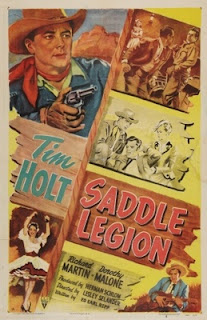Cole Porter (Cary Grant), a law student at Yale opts to discard a career as a jurist to take up songwriting in Night and Day (1946) a very loose interpretation of Mr. Porter's life and career.
Since the release of DeLovely (2004), Night and Day has had to bear the brunt of its claim to being a biography of Cole Porter. Quite frankly, it's not. It's a way of incorporating a vast array of Mr. Porter's glorious music into a film, and tell a story at the same time. Let's go over a few of the facts, and then we can talk about the film as a story, not a biography.
Cole Porter did attend Yale, and one of his classmates was Monty Woolley (Mr. Woolley, who plays himself, was NOT a professor at Yale). The sinking of the Lusitania had nothing to do with the failure of See America First, as the ship sunk in May 1915, and the musical opened in March 1916. Mr. Porter was not wounded in combat during World War I; he is listed as serving in the French Foreign Legion during the war (Broadway, The American Musical). He also spent time in Paris partying and met his future wife in Paris. Linda Lee Thomas was well aware of Mr. Porter's sexuality when they married - she had come from an abusive first marriage. Linda Lee Porter never officially left Cole - in fact, it was she that worked with the doctors to keep them from amputating his leg following his horseback riding accident. She continued as his health advocate until her death in 1954 (Cole Porter obituary). Following her death, doctors convinced him to allow the amputation, and he lived as a recluse for the rest of his life (as Linda feared). Mr. Porter was as openly gay as the era would allow (The New Yorker). Regardless, he and Linda loved one another and were inseparable - les Colporteurs (Smithsonian Magazine).
As you can see from the photo, The Porters looked nothing like their on-screen imitators. Linda wanted Alexis Smith to play her, and when she expressed her desires to Warner Brothers executives, Cole jokingly said that Cary Grant should play him (Cary Grant: In Name Only by Gary Morecambe & Martin Sterling). Mr. Grant and Ms. Smith are wonderful together, and Ms. Smith was thrilled to be working with him. Though he could be very definite in his opinions - for example, Mr. Grant demanded that his suit be cut so that only an eighth of an inch of cuff should show, Ms. Smith commented on his "care and attention" to the character (TCM article). This was Mr. Grant's first technicolor film.Warner Brothers incorporated their best character people into the film. Eve Arden finally gets a chance to sing as French performer Gabrielle, who introduces Porter's song "I'm Unlucky at Gambling." Jane Wyman (Gracie Harris) also gets a chance to show her vocal talents. Dorothy Malone (Nancy) has some brief scenes with Donald Woods (Dr. Ward Blackburn) as her husband and Cole's friend and physician. Alan Hale (Leon Dowling) turns up as a theatrical producer who doesn't see the beauty of Cole's compositions. And Henry Stephenson (Omer Porter) is sympathetic as Cole's grandfather.Monty Woolley gets to play himself, and get off some bon mots while he is at it. He pops in and out of the film, as Woolley wanders in and out of the Porters' lives (and back and forth from New York to Hollywood). There is some amusing banter as he goes off to film The Man Who Came to Dinner - he'd starred in the Broadway play (he almost didn't get the movie role - Warner Brother considered Fredric March, Charles Laughton, Robert Benchley, John Barrymore, and Charles Coburn). Mary Martin, who got her start in Cole Porter's Leave it to Me, reprises her hit song from the musical, "My Heart Belongs to Daddy" (though this song, along with several of the others, are cleaned up versions of Mr. Porter's sometimes rather racy lyrics). Ginny Simms (Carole Hill), the woman who works with Porter in a music store in the film, is very loosely based on Ethel Merman. Ms Merman had appeared in earlier plays, but her first starring role was as Reno Sweeney in Mr. Porter's Anything Goes (AFI catalog).
The New York Times review by Thomas M. Prior (T.M.P.) was positive, though even Mr. Prior pointed out that it wasn't really a biography. When the film DeLovely was released in 2004, The Times again wrote about Night and Day as part of a discussion of the biographical aspects of the two movies.
If you are not a stickler for facts, and would like to see some fine acting, pleasant singing, and spectacular songs, this film is worth a viewing or two. We'll leave you with the trailer:














